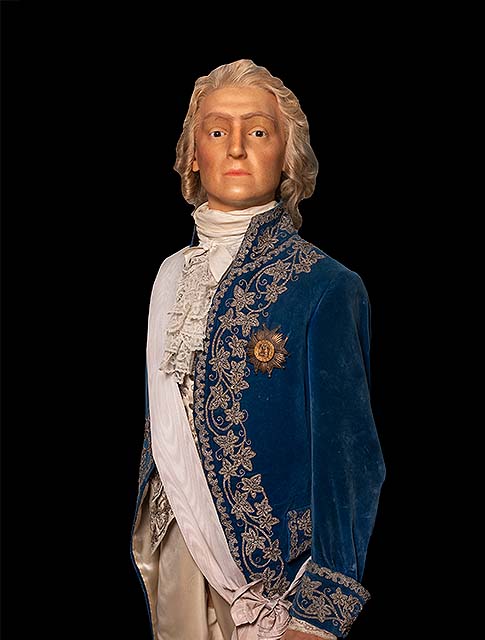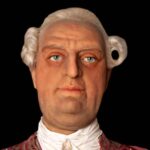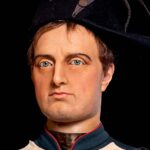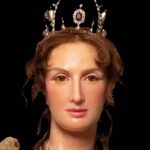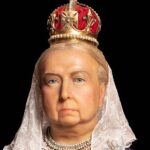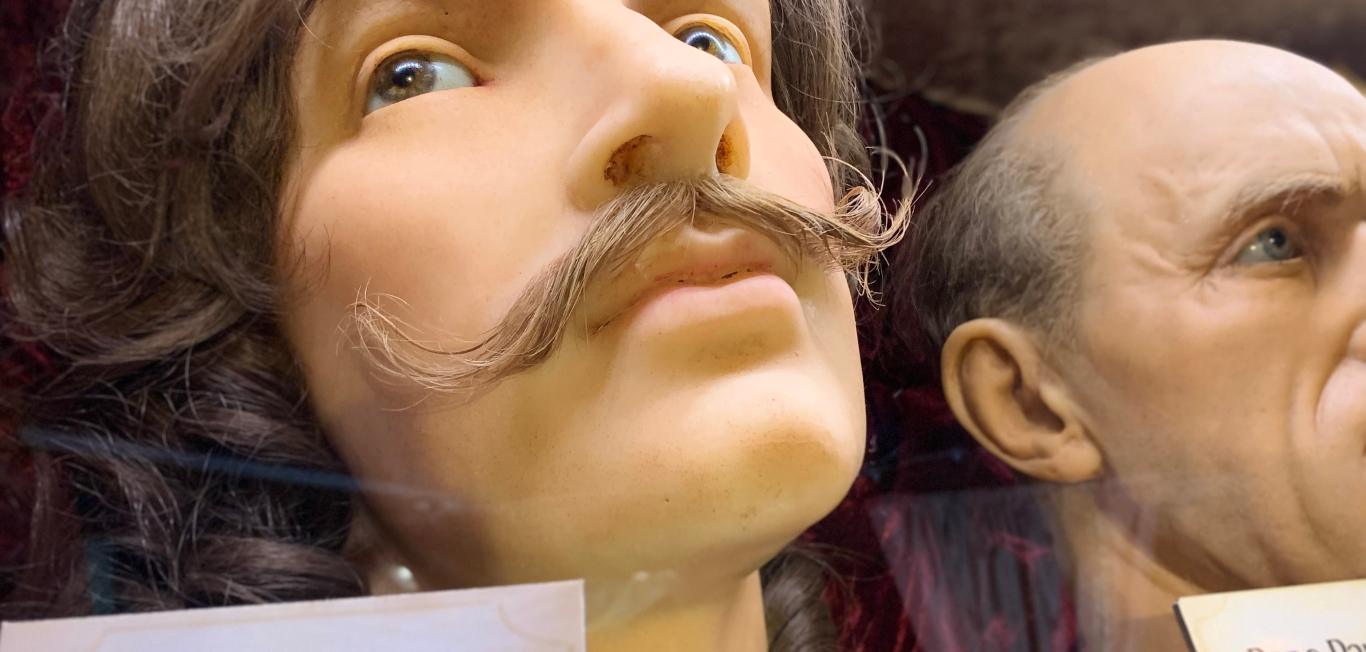Charles Maurice de Talleyrand-Périgord Biography
Charles Maurice de Talleyrand-Périgord, First Prince of Benevento and later First Duke of Talleyrand, was a remarkable figure in French history, known for his diplomatic prowess and political acumen. Born into a noble family in 1754, Talleyrand began his career in the clergy, studying theology and eventually becoming the Agent-General of the Clergy in 1780. This position allowed him to represent the Catholic Church’s interests to the French Crown, marking the beginning of his involvement in French politics.
Talleyrand’s career flourished during a tumultuous period in French history, spanning the reigns of Louis XVI, Napoleon Bonaparte, Louis XVIII, and Louis Philippe I, as well as the turbulent years of the French Revolution. His ability to navigate the shifting political landscape and forge relationships with key figures made him prominent in successive governments.
One of Talleyrand’s most significant roles was as France’s chief diplomat during Napoleon’s reign. Despite the military conquests of the French Empire, Talleyrand advocated for peaceful, diplomatic solutions to secure French hegemony in Europe. His diplomatic skills were instrumental in negotiating treaties and alliances that expanded France’s influence while maintaining relative peace on the continent.
Despite controversy and criticism, Talleyrand’s legacy endures as one of the most skilled diplomats in history. Although he was a part of Napoleon’s administration, his ability to navigate complicated political situations and advocate for peaceful solutions made him a statesman of exceptional talent and influence.
Childhood and Early Years of Charles Maurice de Talleyrand-Périgord
Charles Maurice de Talleyrand-Périgord, born on February 2, 1754, in Paris in the Kingdom of France, was the son of Count Charles-Daniel de Talleyrand-Périgord and Alexandrine de Damas d’Antigny. From a young age, he walked with a limp, believed to be the result of an accident at the age of four but recent research has shown to be congenital, which deemed him unsuitable for a military career and earned him the nickname “the lame devil.”
DID YOU KNOW?
Talleyrand's nickname was “the lame devil.”
Talleyrand’s upbringing and education steered him toward a career in the clergy to succeed his uncle, Alexandre Angélique de Talleyrand-Périgord, who was the Archbishop of Reims. At eight years old, he studied at the Collège d’Harcourt and later at the Seminary of Saint-Sulpice and pursued theological studies at the Sorbonne until he was 21 years old.
In 1779, Talleyrand was ordained as a priest and became Agent-General of the Clergy a year later, representing the Catholic Church to the French Crown. In this role, he created an inventory of churches in France. By 1789, Talleyrand was appointed Bishop of Autun. Shortly after his consecration, he represented the clergy at the 1789 Estates General at Versailles. This event marked his entry into the political arena during a pivotal period in French history.
Personal Life and Legacy of Charles Maurice de Talleyrand-Périgord
Charles Maurice de Talleyrand was known for his relations with several women throughout his lifetime. He did not legitimize his children, but historians have identified four potential offspring: Charles Joseph, Eugène Delacroix, “Mysterious Charlotte,” and Pauline. It is theorized that Charles Joseph is the only true child of Charles Maurice de Talleyrand, that Mysterious Charlotte was the daughter of Talleyrand’s mistress and later wife, Catherine Worlée Grand, and that Pauline, was ostensibly the child of the Duke and Duchess Dino.
Among the most significant women in Talleyrand’s life were Germaine de Staël, a prominent writer and intellectual with whom he had a close relationship, and Dorothea von Biron, the estranged wife of his nephew, Edmond de Talleyrand-Périgord. Catherine Worlée Grand, initially Talleyrand’s mistress, became his wife in 1802 under pressure from Napoleon. However, they eventually divorced when Talleyrand began living openly with von Biron.
Talleyrand’s personal life was marked by scandal and controversy, reflecting the complexities of his character and the turbulent times in which he lived. His relationships with these women offer a glimpse into his private world, revealing a man whose personal life was as intricate and nuanced as his diplomatic maneuvers on the world stage.
Charles Maurice de Talleyrand-Périgord Facts
In 1806, Napoleon appointed Charles Maurice de Talleyrand-Périgord Prince of Benevento.
Born into a privileged life, Talleyrand played a significant role in French history for more than four decades.
Talleyrand served several roles, including diplomat, foreign minister, strategist, and provocateur.
Career of Charles Maurice
de Talleyrand-Périgord
In his early political career, Charles Maurice de Talleyrand-Périgord maintained a facade of religious reverence, aligning outwardly with Orthodox Catholic practices despite his adherence to Enlightenment ideals. However, with the onset of the French Revolution, his true cynicism toward religion became apparent, leading him to renounce his bishopric of Autun on April 13, 1791. His formal laicization by Pope Pius VII followed on June 29, 1802, marking his departure from Orthodox Catholicism.
DID YOU KNOW?
Talleyrand maintained a facade of religious reverence.
During the revolution, Talleyrand embraced anti-clericalism and actively supported revolutionary measures, including creating an inventory of church properties and contributing to the “Declaration of the Rights of Man.” He played a significant role in developing the Civil Constitution of the Clergy, which aimed to nationalize the church.
In 1792, Talleyrand was sent to England to deter war. Although the British declared neutrality during the campaigns of September 1702, his efforts to stop the war ultimately failed. Talleyrand acquired a passport and left for the United States, a neutral country, upon the National Convention issuing a warrant for his arrest.
Talleyrand returned to France in 1796. The following year, he was appointed Foreign Minister in July 1797. He held this title until July 1799. This event marked the beginning of Talleyrand’s influential role in French diplomacy, setting the stage for his future contributions to French politics and international relations.
In the Napoleonic Administration
Charles Maurice de Talleyrand-Périgord played a crucial role alongside Lucien Bonaparte, Napoleon’s younger brother, in the 1799 coup d’état of 18 Brumaire, which led to the establishment of the French Consulate government. Despite frequent disagreements with Napoleon over foreign policy, he was reinstated as Foreign Minister in November 1799 and played a key role in the German mediatization process.
Napoleon further honored Talleyrand by appointing him Grand Chamberlain of the Empire in May 1804 and Sovereign Prince of Benevento in 1806. However, Talleyrand often expressed dissenting views, particularly regarding the harsh treatment of Austria in the Treaty of Pressburg in 1805 and Prussia in the Peace of Tilsit in 1807.
As his service to Napoleon continued, Talleyrand grew skeptical of his leadership and resigned as Foreign Minister in May 1807. Napoleon still found use in Talleyrand and retained him in the Council of State as Vice-Grand Elector of the Empire.
While Talleyrand served on the Council of State as Vice-Grand Elector, it is suggested that he began accepting bribes from Austria and Russia in exchange for Napoleon’s secrets, highlighting his growing disillusionment with the emperor. In 1812, he openly opposed Napoleon’s disastrous invasion of Russia, further straining their relationship.
Charles Maurice de
Talleyrand-Périgord’s Death
Late in life, Charles Maurice de Talleyrand-Périgord experienced a renewed interest in Catholicism. He died in Paris on May 17, 1838, and was laid to rest in Notre-Dame, near his Castle of Valençay. Most of his wealth was inherited by his companion, Dorothea von Biron.
DID YOU KNOW?
Talleyrand was laid to rest in Notre-Dame.
Talleyrand’s name has become synonymous with crafty, cynical, and venal diplomacy. He was known to demand various forms of payment for his state duties, tarnishing his reputation in some circles.
While he achieved great success in European diplomatic affairs, his negotiations with the United States, notably the XYZ Affair, failed. This was caused by his inability to leverage France’s military power as he could with the German states. This was a rare diplomatic misstep in an otherwise illustrious career.
FAQs
What is Charles Talleyrand known for?
He is known for his efforts throughout the French Revolution, the Napoleonic Empire, and the restoration and fall of Louis XVIII. He served as Napoleon’s Foreign Minister but also worked against Napoleon when he believed he had become too territorial.
What did Talleyrand do to Napoleon?
Talleyrand betrayed Napoleon’s secrets by supposedly accepting bribes from Austria and Russia.
Was Charles de Talleyrand a French foreign minister?
Yes, Charles Maurice de Talleyrand-Perigord was a French foreign minister.
What was the significance of the Napoleonic Wars?
The Napoleonic wars led to the Congress of Vienna, which resulted in the mapping out of Europe’s future and later unified Italy and Germany.
How did Charles Talleyrand die?
Charles Talleyrand died from natural causes.
